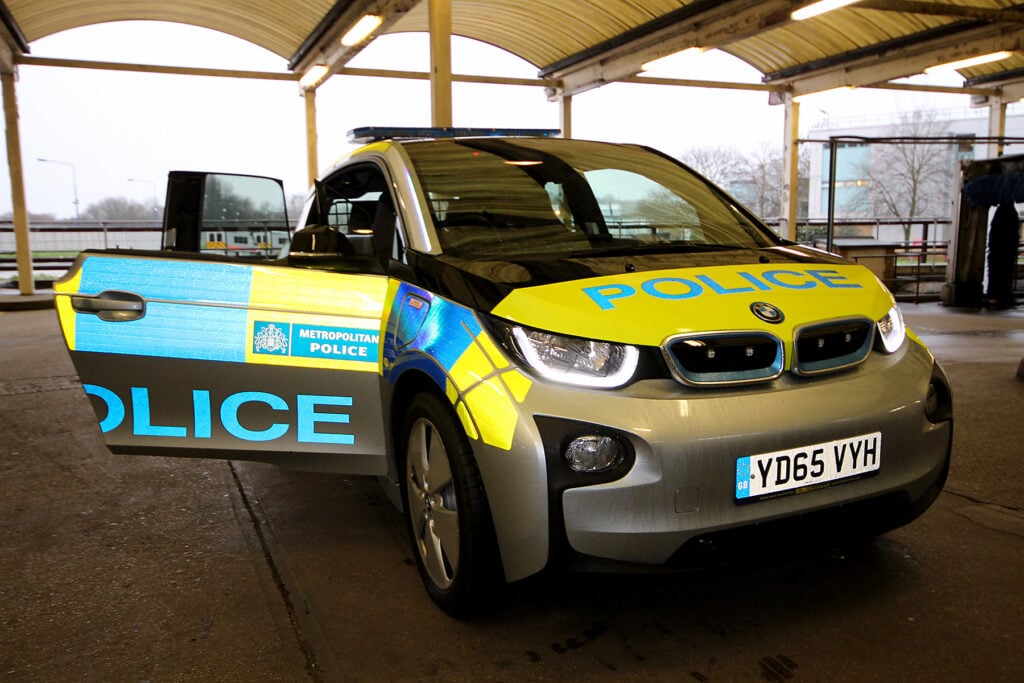London’s Metropolitan Police Service has kick started its rollout of electric vehicles in a bid to help combat the capital’s air pollution problem.
The Met is currently working to introduce around 250 electric or hybrid vehicles into its fleet, with an overall target to replace 700 of the police force’s vehicles throughout 2017.
The Met confirmed that vehicles being rolled out will be similar to the BMW i3 which was successfully trialled as an emergency incident response vehicle in various London boroughs.
In January last year the Met took delivery of its first BMW i3 Range Extender ahead of it being tested in Westminster, Greenwich and Bexley after it was considered to be a “brilliant fit” for the Met’s demands.
Jiggs Bharij, head of fleet at the Met, said the force was now looking at various plug-in hybrids and alternative fuel-powered vehicles, however stressed the need for the operational fleet to remain available at all times.
“We have an ambition to deploy 250 [alternative energy] cars, vans and motorcycles on the road within the next 12 months. To support this we need to make sure that there are charging points available across the estate and that the vehicles are capable of carrying and powering additional police equipment which enables officers and members of the public to remain safe at the scene of an incident,” he added.
Bharij also revealed that the response from officers to the new vehicles had been “very positive”.
“The Met is leading the way – certainly in the police sector – and this compliments the decision in late 2015 to stop mandating diesel fuel for our fleet. We continue to work with a variety of vehicle manufacturers to explore the range of technology and the use of vehicles for evaluation has been a great success,” he said.
The Evening Standard last week claimed that the Met had held discussions with Tesla founder Elon Musk, opening speculation that one or more Tesla models could be among those to be trialled in the future.
Electric scooters will also be handed to officers as the police force aims to do its bit towards helping London’s air pollution problems.
Particular streets in the capital exceeded its air pollution limits within just days of 2017 and mayor Sadiq Khan has been an outspoken critic of his predecessor’s efforts to improve London’s air quality.
Last month the mayor announced £2.5 million in funding to help further electric vehicle adoption in London for precisely that reason.
Bharij said the vehicle rollout would help complement low-emission neighbourhoods.
“These first vehicles are a stepping stone that will allow us to build the volume over time once we have the right technology and infrastructure in place,” he added.





